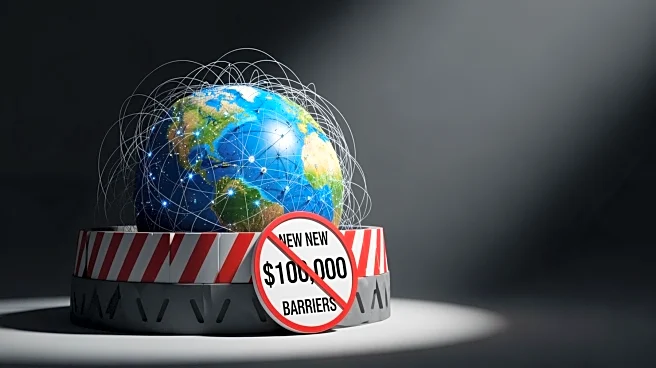What's Happening?
Several major U.S. companies have stopped sponsoring H-1B visas following the Trump administration's announcement of a new $100,000 fee for new applications. This fee applies to new applicants and not
to current holders or renewals. The U.S. Citizenship and Immigration Services clarified that the fee is applicable to applications submitted after September 21 for workers outside the U.S. The move has sparked legal challenges, with the Chamber of Commerce arguing that the fee is cost-prohibitive for U.S. employers, particularly affecting start-ups and small businesses. Companies like Cognizant, Intuitive Surgical, Tata Consultancy Services, and Walmart have either paused or reduced their H-1B sponsorships.
Why It's Important?
The introduction of the $100,000 fee for H-1B visas could significantly impact the U.S. tech industry and other sectors reliant on foreign skilled workers. The fee may deter companies from hiring international talent, potentially affecting innovation and competitiveness. The legal challenges and pushback from business groups highlight concerns about the policy's impact on the U.S. economy and its ability to attract global talent. The decision could lead to a shift in hiring practices, with companies seeking alternative visa options or focusing on local talent, which may not always meet the specialized skill requirements.
What's Next?
The new fee has already taken effect, and its impact on the H-1B visa program will be closely monitored. Legal challenges may continue, potentially leading to changes or reversals in the policy. Companies may explore other visa options, such as L-1 or E-2 visas, to maintain their workforce needs. The situation may also prompt discussions on broader immigration reforms to balance the need for skilled foreign workers with domestic employment concerns.










